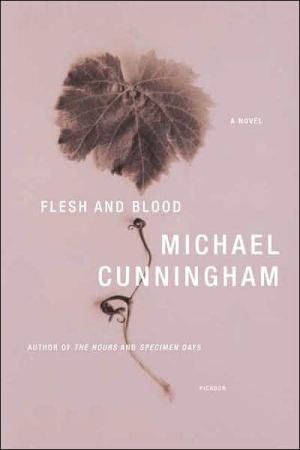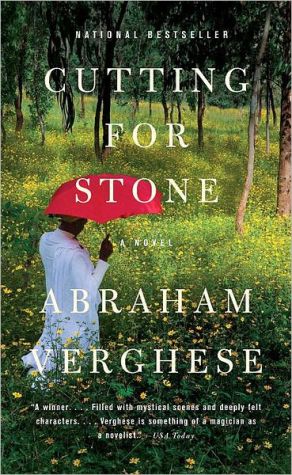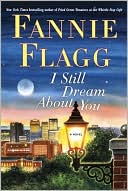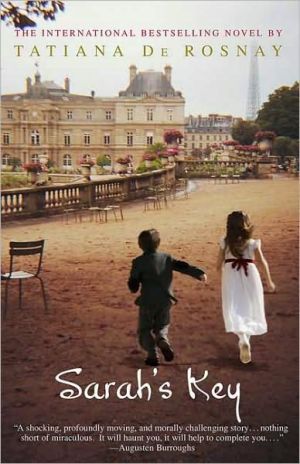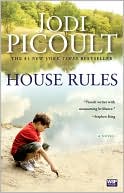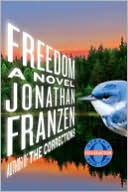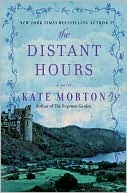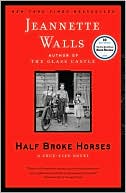Flesh and Blood
From the bestselling author of The Hours and Specimen Days comes a generous, masterfully crafted novel with all the power of a Greek tragedy. The epic tale of an American family, Flesh and Blood follows three generations of the Stassos clan as it is transformed by ambition, love, and history. Constantine Stassos, a Greek immigrant, marries Mary Cuccio, an Italian-American girl, and they have three children, each fated to a complex life. Susan is oppressed by her beauty and her father's...
Search in google:
From the bestselling author of The Hours and Specimen Days comes a generous, masterfully crafted novel with all the power of a Greek tragedy. The epic tale of an American family, Flesh and Blood follows three generations of the Stassos clan as it is transformed by ambition, love, and history. Constantine Stassos, a Greek immigrant, marries Mary Cuccio, an Italian-American girl, and they have three children, each fated to a complex life. Susan is oppressed by her beauty and her father's affections; Billy is brilliant, and gay; Zoe is a wild, heedless visionary. As the years pass, their lives unfold in ways that compel them--and their parents--to meet ever greater challenges.Publishers WeeklyThe cheers that greeted his literary debut, A Home at the End of the World, will resound again for Cunningham's second novel. Here his prose is again rich, graceful and luminous, and he exhibits a remarkable maturity of vision and understanding of the human condition. The marriage of Greek immigrant Constantine to Mary, the offspring of an Italian clan, is a mismatch of incompatible personalities, a union that is later maintained in a delicate balance between incomprehension and rage. The birth of their three children exacerbates the tension and leaves its indelible mark unto the third generation. When he becomes a partner in a shoddy construction company, Con lifts the Stassos family from near-poverty in Elizabeth, N.J., to a nouveau-riche enclave on Long Island, but his lifelong concern with money, and with exhibiting ``manliness,'' erupts into violent behavior that alienates his only son, Billy, even before the boy realizes that he is a homosexual. Con damages the other children, too; Susan escapes his sexual overtures through an early marriage, and wild, feral Zoe joins the drug culture in New York. Yet Cunningham condemns no one; he understands that Con ``exists in a chaos of yearning . . . [of] love and... hunger and... bottomless grief,'' and he portrays the other characters with equal sympathy. In delineating the story of this disconnected family, each member floating in his or her own sphere of bewilderment, anger, mistrust and fear but inextricably bound to others by flesh and blood, Cunningham illuminates the chasm between parents and children in contemporary America, beginning in the 1970s, when drug use and sexual freedom broke traditional constraints. Both fate and accident determine all of the characters' lives. Con betrays beautiful, distant Mary with his partner's fat, plain secretary-and ends up married to her. Mary becomes friends with Cassandra, a drag queen who is the godmother of Zoe's illegitimate half-black son. Billy renames himself Will, and finally finds a loving companion. All the characters are fallible and come late to self-knowledge. Cunningham's portraits are so honest and sensitive that we can see into their souls. His prose is both restrained and mesmerizing: individual scenes-such as one of teenagers in a car wreck-become incandescent images. In the end, what remains of Con and Mary's failed dreams of their lives and those of their children and grandchildren becomes a transcendent testament to the power of human endurance. 75,000 first printing; movie rights optioned by Tony Ganz/Wolf Productions; author tour. (Apr.)
1935\ Constantine, eight years old, was working in his father's garden and thinking about his own garden, a square of powdered granite he had staked out and combed into rows at the top of his family's land. First he weeded his father's bean rows and then he crawled among the gnarls and snags of his father's vineyard, tying errant tendrils back to the stakes with rough brown cord that was to his mind the exact color and texture of righteous, doomed effort. When his father talked about\ "working ourselves to death to keep ourselves alive," Constantine imagined this cord, coarse and strong and drab, electric with stray hairs of its own, wrapping the world up into an awkward parcel that would not submit or stay tied, just as the grapevines kept working themselves loose and shooting out at ecstatic, skyward angles. It was one of his jobs to train the vines, and he had come to despise and respect them for their wild insistence. The vines had a secret, tangled life, a slumbering will, but it was he, Constantine, who would suffer if they weren't kept staked and orderly. His father had a merciless eye that could find one bad straw in ten bales of good intentions.\ As he worked he thought of his garden, hidden away in the blare of the hilltop sun, three square feet so useless to his father's tightly bound future that they were given over as a toy to Constantine, the youngest. The earth in his garden was little more than a quarter inch of dust caught in a declivity of rock, but he would draw fruit from it by determination and work, the push of his own will.\ From his mother's kitchen he had spirited dozens of seeds, the odd ones that stuck to the knife or fell on thefloor no matter how carefully she checked herself for the sin of waste. His garden lay high on a crown of scorched rock where no one bothered to go; if it produced he could tend the crop without telling anyone. He could wait until harvest time and descend triumphantly, carrying an eggplant or a pepper, perhaps a tomato. He could walk through the autumn dusk to the house where his mother would be laying out supper for his father and brothers. The light would be at his back, hammered and golden. It would cut into the dimness of the kitchen as he threw open the door. His mother and father and brothers would look at him, the runt, of whom so little was expected. When he stood in the vineyard looking down at the world -- the ruins of the Papandreous' farm, the Kalamata Company's olive groves, the remote shimmer of town -- he thought of climbing the rocks one day to find green shoots pushing through his patch of dust. The priest counseled that miracles were the result of diligence and blind faith. He was faithful.\ And he was diligent. Every day he took his ration of water, drank half, and sprinkled half over his seeds. That was easy, but he needed better soil as well.\ The pants sewn by his mother had no pockets, and it would be impossible to steal handfuls of dirt from his father's garden and climb with them past the goats'\ shed and across the curving face of the rock without being detected. So he stole the only way he could, by bending over every evening at the end of the workday, as if tying down one last low vine, and filling his mouth with earth. The soil had a heady, fecal taste; a darkness on his tongue that was at once revolting and strangely, dangerously delicious. With his mouth full he made his way up the steep yard to the rocks. There was not much risk, even if he passed his father or one of his brothers. They were used to him not speaking. They believed he was silent because his thoughts were simple. In fact, he kept quiet because he feared mistakes. The world was made of mistakes, a thorny tangle, and no amount of cord, however fastidiously tied, could bind them all down. Punishment waited everywhere. It was wiser not to speak. Every evening he walked in his customary silence past whatever brothers might still be at work among the goats, holding his cheeks in so no one would guess his mouth was full. As he crossed the yard and ascended the rocks he struggled not to swallow but inevitably he did, and some of the dirt sifted down his throat, reinfecting him with its pungent black taste. The dirt was threaded with goat dung, and his eyes watered. Still, by the time he reached the top, there remained a fair-sized ball of wet earth to spit into his palm. Quickly then, fearful that one of his brothers might have followed to tease him, he worked the handful of soil into his miniature garden. It was drenched with his saliva. He massaged it in and thought of his mother, who forgot to look at him because her own life held too many troubles for her to watch. He thought of her carrying food to his ravenous, shouting brothers. He thought of how her face would look as he came through the door one harvest evening. He would stand in the bent, dusty light before his surprised family. Then he would walk up to the table and lay out what he'd brought: a pepper, an eggplant, a tomato.\ \ \ \ \ Other Books With Reading Group Guides\ \ \
\ From the Publisher"A wonderful . . . sprawling, old-fashioned novel."—The New York Times Book Review "A work of dramatic humanity at a high and poetic level."—Los Angeles Times "Reading Michael Cunningham is like putting on see-through glasses. He's got this way of exposing his characters' deepest inclinations and motivations, letting us peer through glass directly into their souls."—The Boston Globe\ "The book buzzcuts like Edward Scissorhands through the conventionally dull pastures of the American family saga."—Vanity Fair\ \ \ \ \ \ Publishers Weekly - Publisher's Weekly\ The cheers that greeted his literary debut, A Home at the End of the World, will resound again for Cunningham's second novel. Here his prose is again rich, graceful and luminous, and he exhibits a remarkable maturity of vision and understanding of the human condition. The marriage of Greek immigrant Constantine to Mary, the offspring of an Italian clan, is a mismatch of incompatible personalities, a union that is later maintained in a delicate balance between incomprehension and rage. The birth of their three children exacerbates the tension and leaves its indelible mark unto the third generation. When he becomes a partner in a shoddy construction company, Con lifts the Stassos family from near-poverty in Elizabeth, N.J., to a nouveau-riche enclave on Long Island, but his lifelong concern with money, and with exhibiting ``manliness,'' erupts into violent behavior that alienates his only son, Billy, even before the boy realizes that he is a homosexual. Con damages the other children, too; Susan escapes his sexual overtures through an early marriage, and wild, feral Zoe joins the drug culture in New York. Yet Cunningham condemns no one; he understands that Con ``exists in a chaos of yearning . . . [of] love and... hunger and... bottomless grief,'' and he portrays the other characters with equal sympathy. In delineating the story of this disconnected family, each member floating in his or her own sphere of bewilderment, anger, mistrust and fear but inextricably bound to others by flesh and blood, Cunningham illuminates the chasm between parents and children in contemporary America, beginning in the 1970s, when drug use and sexual freedom broke traditional constraints. Both fate and accident determine all of the characters' lives. Con betrays beautiful, distant Mary with his partner's fat, plain secretary-and ends up married to her. Mary becomes friends with Cassandra, a drag queen who is the godmother of Zoe's illegitimate half-black son. Billy renames himself Will, and finally finds a loving companion. All the characters are fallible and come late to self-knowledge. Cunningham's portraits are so honest and sensitive that we can see into their souls. His prose is both restrained and mesmerizing: individual scenes-such as one of teenagers in a car wreck-become incandescent images. In the end, what remains of Con and Mary's failed dreams of their lives and those of their children and grandchildren becomes a transcendent testament to the power of human endurance. 75,000 first printing; movie rights optioned by Tony Ganz/Wolf Productions; author tour. (Apr.)\ \ \ Library JournalThe story of Constantine Stassos freshly examines the American immigrant experience and conflict between generations. He, wife Mary, and three children Susan, Will, and Zoe seemingly embody solid middle-class values. However, Constantine's cruelty, voracious appetites, and questionable business practices poison his marriage and brutalize his children. Through painful quests for independence, personal balance, and community, the Stassos children learn acceptance of themselves and their siblings. Fairly brief episodes, often occuring years apart, recount key moments in the establishment, disintegration, and reconfiguration of the family. Thoroughly realized action, vivid character delineation, and the splendid control of language guarantee both the unity and powerful impact of this successful novel by the author of The Home at the End of the World (LJ 10/15/90). Very highly recommended.-Jane S. Bakerman, Indiana State Univ., Terre Haute\ \ \ \ \ Library JournalCunningham offers a big, sprawling drama that follows three generations of the Stassos family, from 1958 to 2035. The 1995 novel garnered some impressive reviews for its handling of the immigrant experience and the later generations' rejection of their ancestors' ways.\ \ —Michael Rogers\ \
